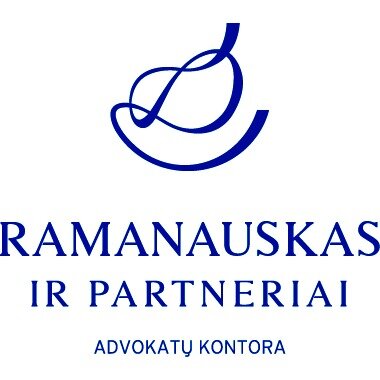
Best Reinsurance Lawyers in Republic of Lithuania
Share your needs with us, get contacted by law firms.
Free. Takes 2 min.
Or refine your search by selecting a city:
List of the best lawyers in Republic of Lithuania

About Reinsurance Law in Republic of Lithuania
Reinsurance in the Republic of Lithuania is a vital part of the insurance industry, serving as a mechanism for insurers to manage risk and stabilize their financial position. Reinsurance involves an insurer transferring portions of their risk portfolios to other parties to reduce the likelihood of having to pay a large obligation resulting from a significant event. Lithuania's integration into the European Union has greatly influenced its regulatory framework, aligning it with broader EU directives and regulations. The Bank of Lithuania supervises and regulates all insurance and reinsurance activities, ensuring compliance with legal standards and safeguarding the interests of policyholders.
Why You May Need a Lawyer
There are several scenarios where legal advice might be crucial in the field of reinsurance. Common situations include disputes over reinsurance contracts, claims denials, interpretation of complex terms, compliance with regulatory requirements, and negotiating reinsurance agreements. Additionally, if your company is facing an audit or investigation by regulatory bodies, a lawyer with expertise in insurance and reinsurance laws can provide invaluable assistance. Legal advice may also be necessary during mergers and acquisitions involving insurance companies or reinsurance dealing with cross-border elements due to the often complex legal landscape.
Local Laws Overview
In Lithuania, the legal framework governing reinsurance is embedded within the broader insurance legislation, subject to EU regulations such as the Solvency II Directive, which dictates the amount of capital insurers must hold to reduce the risk of insolvency. The Insurance Law of the Republic of Lithuania lays out specific provisions for the financial stability, operation, and licensing of insurers and reinsurers. The Bank of Lithuania plays a crucial role in oversight, tasked with ensuring compliance, protecting policyholders, and maintaining market stability. Regular reporting and disclosure requirements form part of the regulatory landscape for reinsurance companies operating within Lithuania.
Frequently Asked Questions
What is the role of the Bank of Lithuania in reinsurance?
The Bank of Lithuania oversees and regulates all reinsurance activities, ensuring companies comply with legal standards, thus safeguarding policyholder interests.
Are there specific regulations for foreign reinsurance companies operating in Lithuania?
Yes, foreign companies must comply with local laws and are subject to EU regulations. They may need to establish a branch or subsidiary and obtain a license from the Bank of Lithuania.
What are the contract requirements for reinsurance agreements?
Reinsurance contracts must fulfill legal and regulatory standards, clearly outlining terms, conditions, premiums, and coverage limits, as per Lithuanian and EU regulations.
How does Solvency II affect reinsurance companies in Lithuania?
Solvency II establishes risk management standards and solvency requirements, impacting how reinsurance companies manage capital and assess risks.
What happens if there is a dispute over a reinsurance claim?
Reinsurance claim disputes can be settled through negotiation, arbitration, or litigation, often requiring legal expertise to interpret complex contract terms.
Are there mandatory reporting requirements for reinsurance companies?
Yes, companies must regularly report their financial situation and risk assessments to the Bank of Lithuania, adhering to statutory and regulatory requirements.
Can a reinsurance company in Lithuania cover risks from other EU countries?
Yes, due to EU directives, Lithuanian reinsurance companies can operate across the EU while complying with host country regulations and Lithuanian oversight.
What is a reinsurance pool?
A reinsurance pool is a collective arrangement where multiple insurers share risks, helping to spread liabilities among different participants to mitigate individual company exposure.
How does GDPR impact reinsurance companies?
GDPR requires reinsurance companies to handle personal data responsibly, ensuring confidentiality and data protection, especially in contract management and claims processing.
What should be considered when negotiating a reinsurance agreement?
Key considerations include the scope of coverage, premiums, liabilities, regulatory compliance, and contract terms, often necessitating specialized legal advice.
Additional Resources
To get more insights, it is recommended to consult the Insurance Department of the Bank of Lithuania. Professional associations, such as the Lithuanian Insurance Brokers' Association, may also provide guidance. Legal libraries and online databases can offer legislative texts and resources for understanding the intricacies of Lithuanian reinsurance law.
Next Steps
If you need legal assistance in reinsurance, it is advisable to consult with a legal expert specializing in insurance law. Determine your specific needs related to contract drafting, dispute resolution, or regulatory compliance. Prepare all documentation and details relevant to your case. You can also reach out to local law firms with a focus on reinsurance, or contact the legal department of your insurance or reinsurance provider for guidance.
Lawzana helps you find the best lawyers and law firms in Republic of Lithuania through a curated and pre-screened list of qualified legal professionals. Our platform offers rankings and detailed profiles of attorneys and law firms, allowing you to compare based on practice areas, including Reinsurance, experience, and client feedback.
Each profile includes a description of the firm's areas of practice, client reviews, team members and partners, year of establishment, spoken languages, office locations, contact information, social media presence, and any published articles or resources. Most firms on our platform speak English and are experienced in both local and international legal matters.
Get a quote from top-rated law firms in Republic of Lithuania — quickly, securely, and without unnecessary hassle.
Disclaimer:
The information provided on this page is for general informational purposes only and does not constitute legal advice. While we strive to ensure the accuracy and relevance of the content, legal information may change over time, and interpretations of the law can vary. You should always consult with a qualified legal professional for advice specific to your situation.
We disclaim all liability for actions taken or not taken based on the content of this page. If you believe any information is incorrect or outdated, please contact us, and we will review and update it where appropriate.
Browse reinsurance law firms by city in Republic of Lithuania
Refine your search by selecting a city.














